Gretna starlings put on spectacular murmuration display
- Published
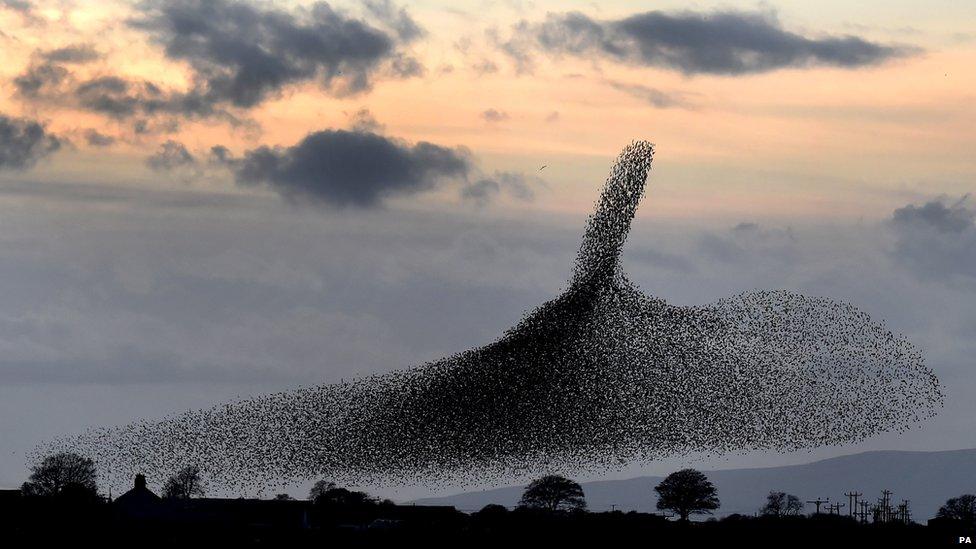
The murmurations are a regular occurrence at Gretna with the birds gathering in their tens of thousands
Starlings have once again been putting on a spectacular display as they gather in huge murmurations at Gretna in the south of Scotland.
Tens of thousands of the birds are regularly seen around this time of year near the Dumfries and Galloway town.
It is one of the most famous locations for the natural spectacle, the reason for which is not definitively known.
A survey of the birds across the UK is currently under way with members of the public urged to record sightings.
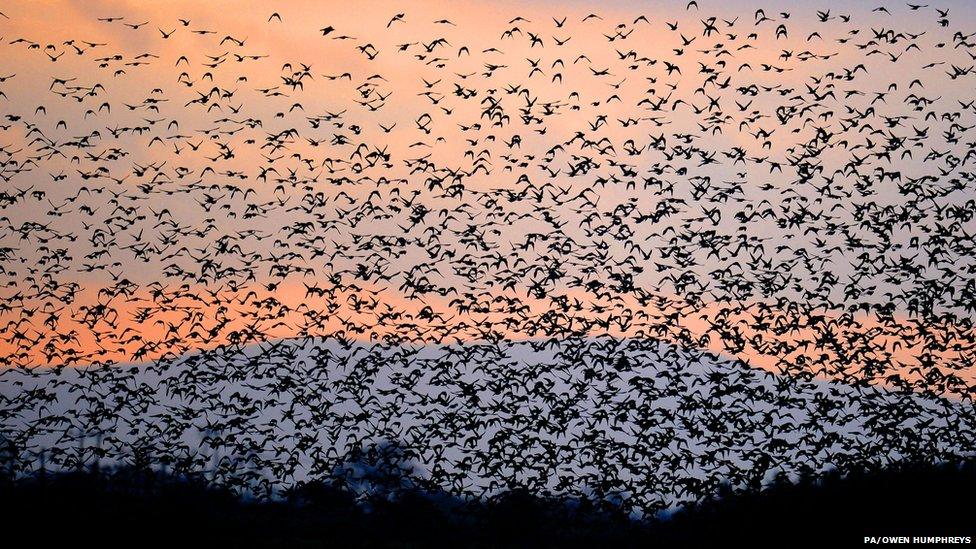
The poll, conducted by the University of Gloucestershire and the Society of Biology, is the first of its kind and has already received more than 600 reports from Cornwall to John O'Groats.
Dr Anne Goodenough, reader in applied ecology at Gloucestershire University, said: "One of the theories behind the murmurations is that it means they are safer from predators such as hawks and falcons.
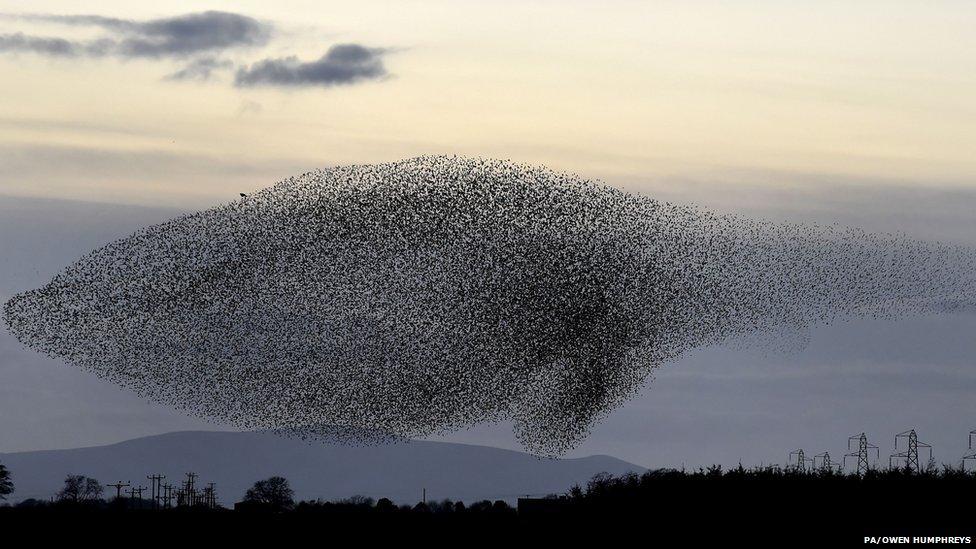
"Another theory could be they are signalling a large roost and it could be a way of attracting other birds to that area to build up a big flock as it would be warmer.
"It's much warmer to roost as a big group rather than a smaller one and the murmurations can be as big as 100,000 birds."
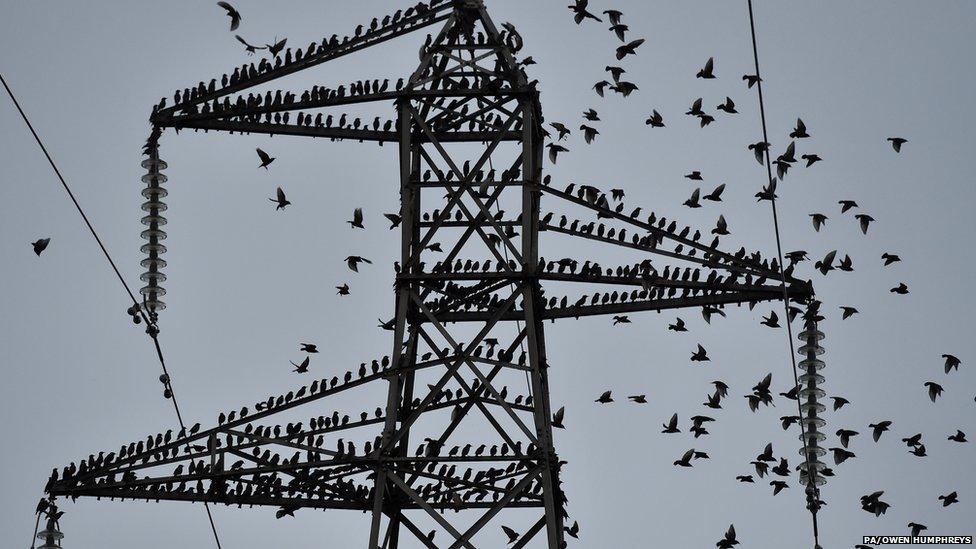
She said that it remained a mystery why only European starlings undertook such "massive aerial displays" for a sustained period before roosting.
"But that makes this topic a really fascinating one to study," she added.
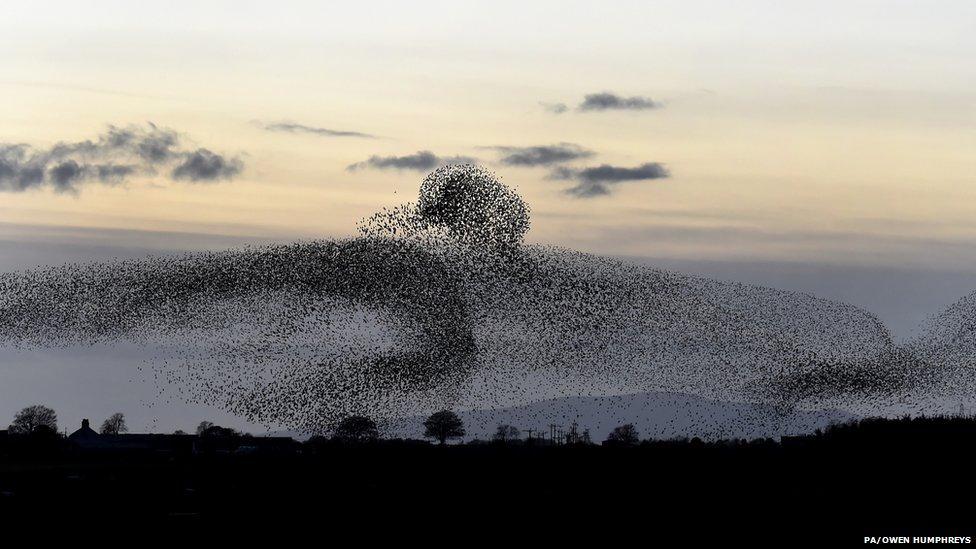
"If we can work out exactly why starlings murmurate, maybe it will be a good way in to working out why many other species do not."
The study is asking people who see murmurations to records things such as the location, the number of birds, the habitat and how long it lasts.
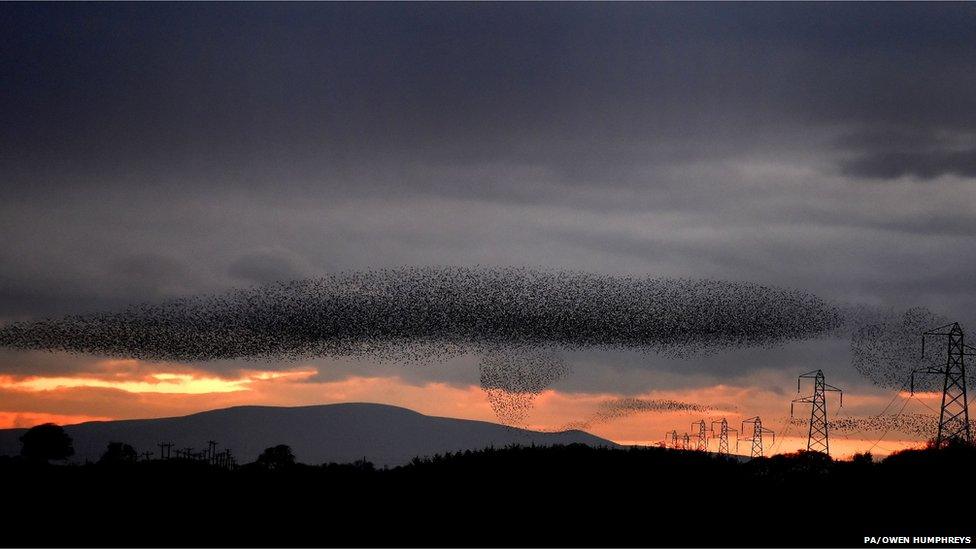
Starling numbers in the UK are actually declining - falling by 66% since the 1970s - and it is hoped the survey will provide important information about their habitat and behaviour.
The survey can be found online., external
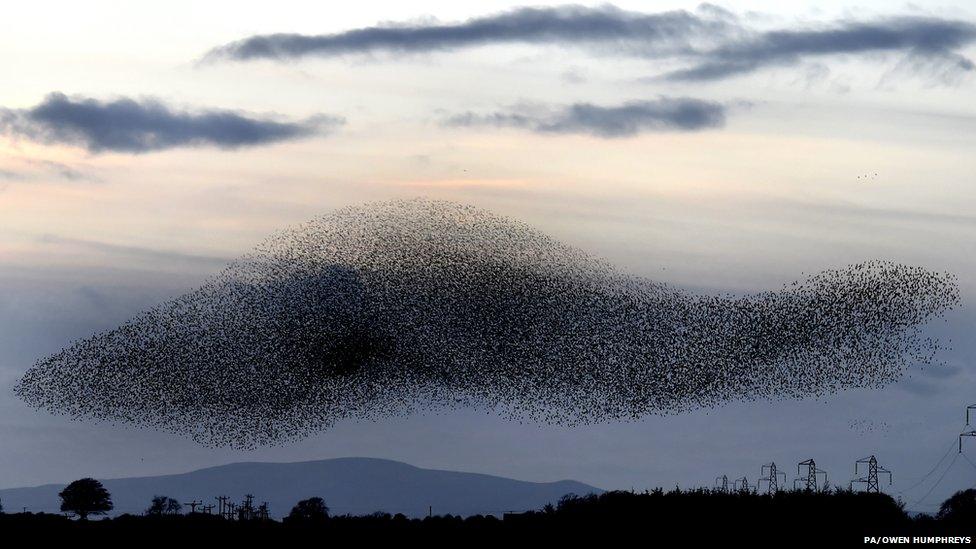
- Published6 November 2014
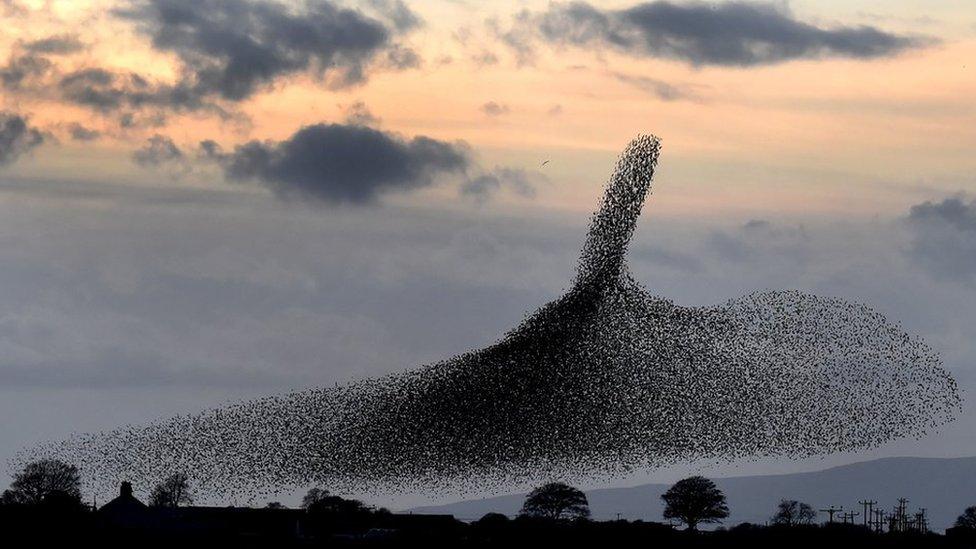
- Published30 October 2014
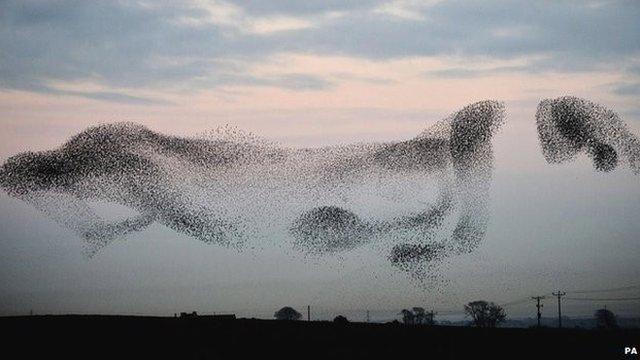
- Published29 October 2014